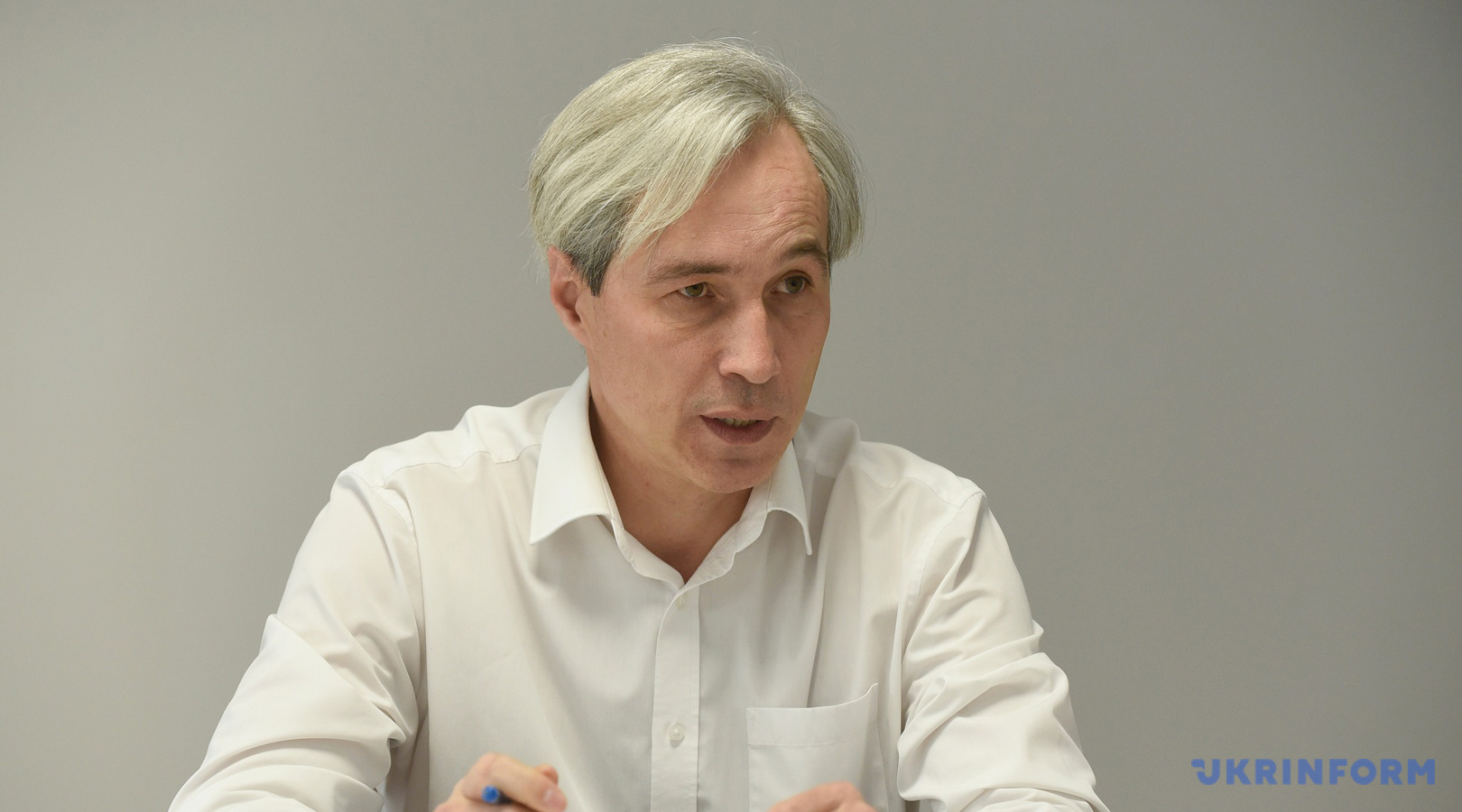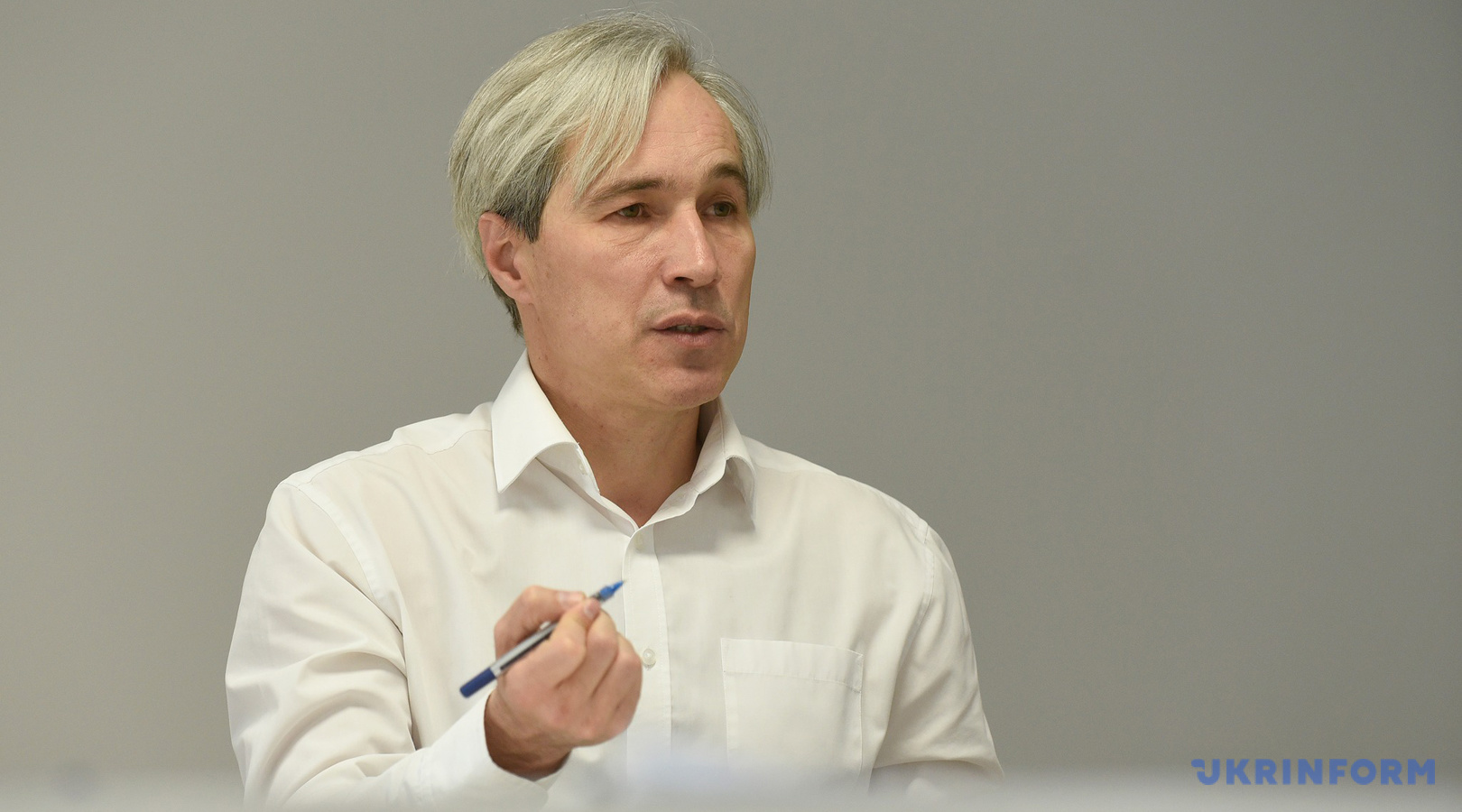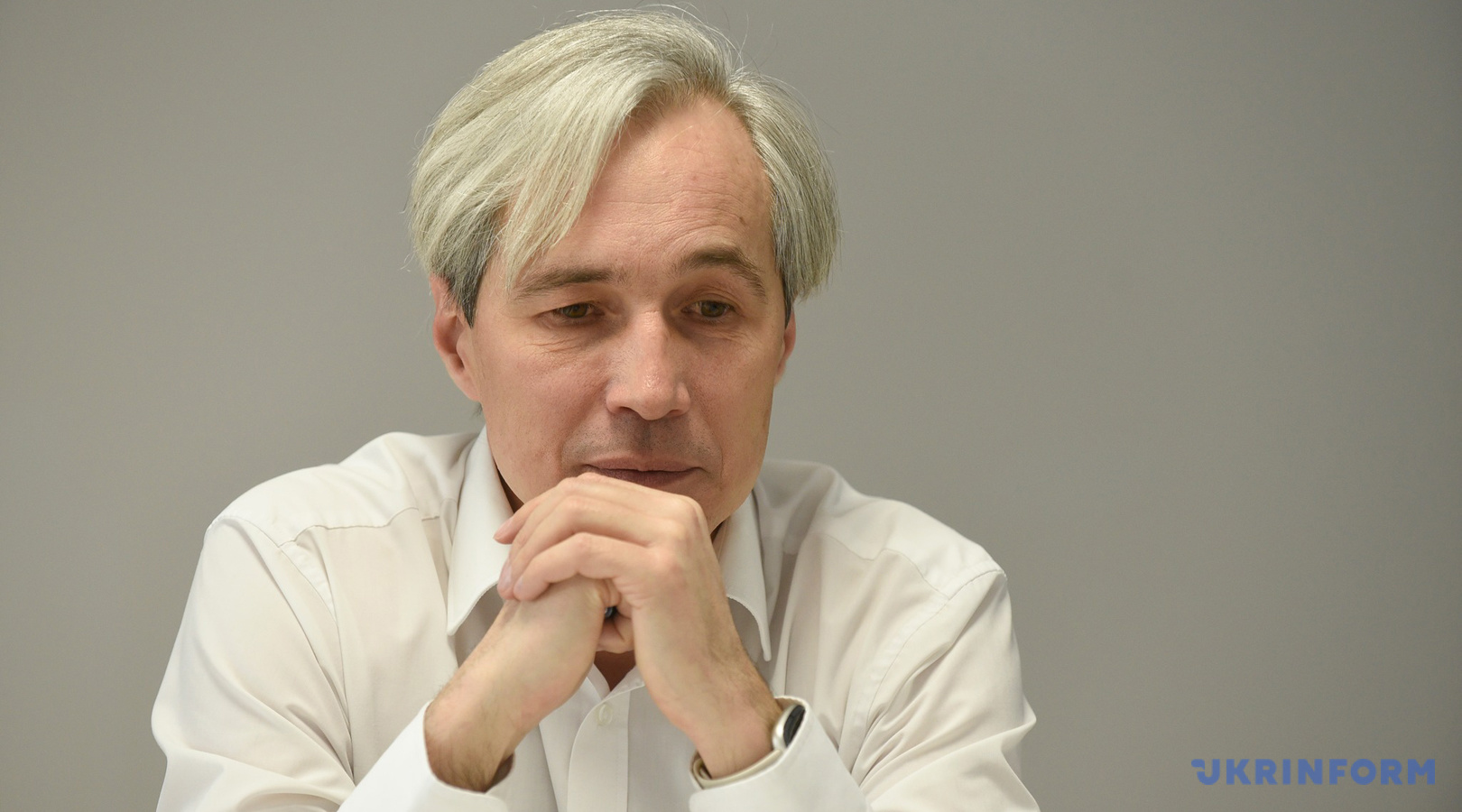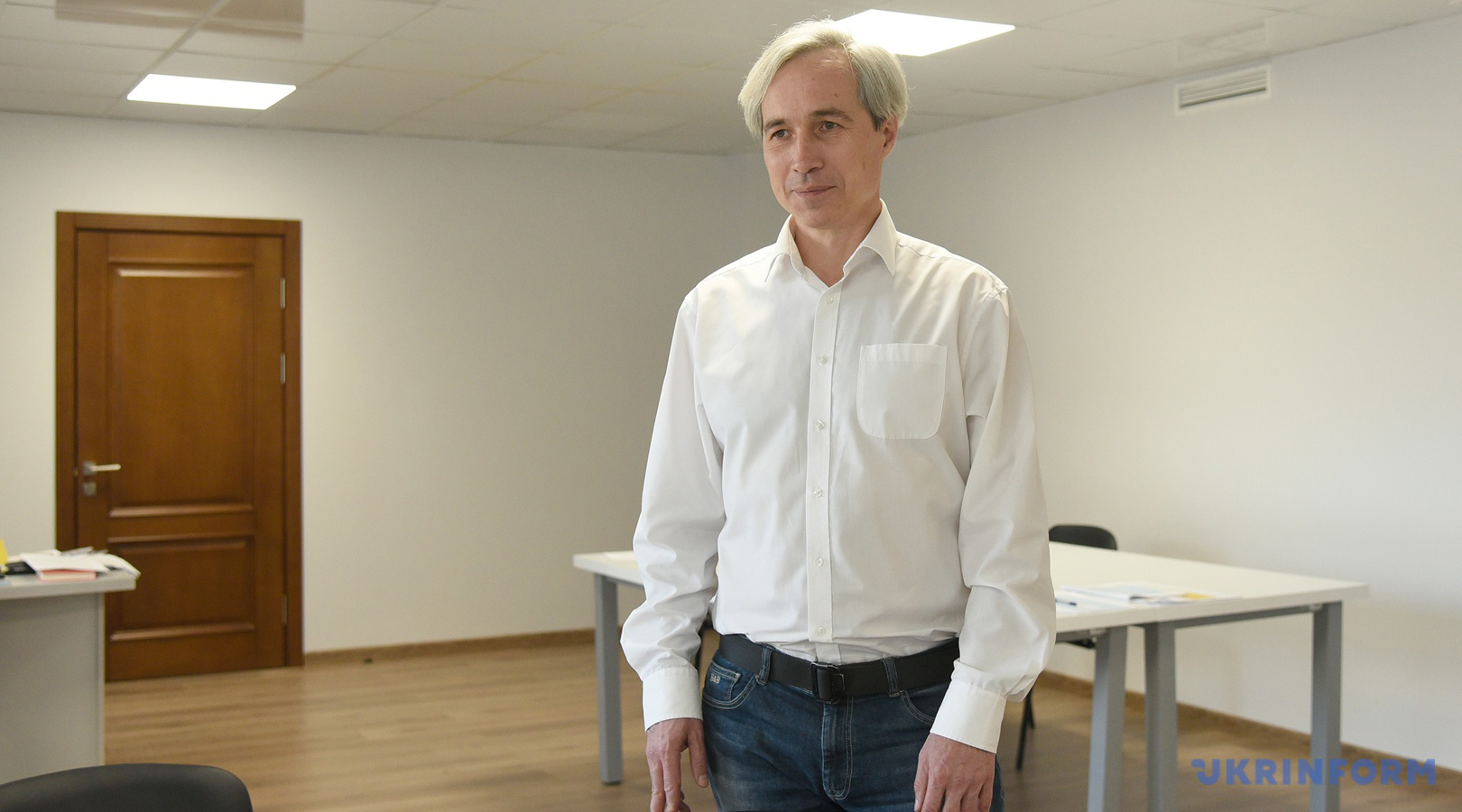The team of the Ministry of Defense led by Rustem Umerov conducted an audit of the defense department and declared the implementation of financial control reform. Ukrinform asked Deputy Minister of Defense of Ukraine Yuriy Dzhygyr about the results of the audit, what the reform is about, and how the joint audit of weapons provided to Ukraine is carried out with international partners.
THE AUDIT REVEALED VIOLATIONS WORTH MORE THAN UAH 10 BILLION
- After the change of team in the Ministry of Defense, an audit was announced to show the real state of affairs after Oleksii Reznikov left the post. Did this audit take place, in which areas was it conducted and what were its results?
- The work of internal audit is a fairly routine standardized process in the Ministry of Defense. With the arrival of the new political team, we, like any other management, approved an audit plan for risky areas.
According to this plan, by the end of last year, the Internal Audit Service audited such processes as the calculation and payment of additional remuneration for direct participation of military personnel in combat operations, procurement of food for military personnel, functional management of state-owned enterprises, organization of financial and logistical support for the units of the Territorial Defense Forces (TDF), as well as the use of resources in the field of activity of the Land, Navy and Air Forces of the Armed Forces of Ukraine.
The audit revealed violations, inefficient management decisions and risks in asset management totaling more than UAH 10 billion. That is, the internal audit identified certain possible negative consequences that require immediate response. In other words, the audit is aimed at preventing violations. It is important that certain reimbursement of funds and elimination of the vast majority of these violations were organized directly during internal audits. The implementation of audit recommendations resulted in an economic effect totaling more than UAH 1.5 billion.
- Do I understand correctly that absolutely all structures within the Ministry of Defense undergo these procedures?
- Yes, at one point or another, everyone becomes subject to an audit. This process is not fast. The Ministry of Defense is a huge mechanism with a large number of structural units. But every few years, at least high-risk areas should come under audit, and they should be followed by a conclusion and an appropriate response. As for the risky areas, they have been identified.

BASED ON THE RESULTS OF INSPECTIONS IN 2023, 84 CRIMINAL PROCEEDINGS WERE SENT TO COURT, 39 OF WHICH RESULTED IN JUDICIAL VERDICTS
- What areas are considered "risky"?
- Our risky areas are defined by the State Anti-Corruption Program. Among them is the inefficient use of defense land. For example, during an internal audit of one of the state-owned enterprises of the Ministry of Defense, it was found that the funds and land of this enterprise in Kyiv were illegally alienated. Thanks to coordinated cooperation with the Main Directorate of Defense Lands and Funds, the Ministry of Justice of Ukraine canceled the illegal registration of real estate for a commercial entity, which even a large-scale invasion by the aggressor did not stop it from making tens of millions of hryvnias in profits at the expense of the defense department's funds.
The risky area also includes the accrual and payment of additional remuneration for the direct participation of military personnel in combat operations. Internal audits in military units have shown significant amounts of violations, primarily due to the inclusion in the orders of military unit commanders for the payment of additional remuneration in the amount of UAH 30,000 to servicemen who did not actually perform tasks related to direct participation in combat operations.
The lack of clear definitions, in particular the concept of "special" tasks, was one of the reasons for the violations. In fact, commanders of many levels equated this concept with the performance of tasks by military personnel in permanent deployment points without daily involvement in the events taking place in the east and south of the country.
A specific risk that emerged during active hostilities was humanitarian aid. Since the beginning of 2023, a third of humanitarian aid has not been delivered to military units - these are the results of an audit by the Department for Combating Smuggling and Customs Violations of the State Customs Service and the Internal Audit Service, which have already been announced in the media. In particular, more than 9,000 cases of humanitarian aid being transferred to 200 military units were checked, while in more than 3,000 cases, the receipt of the aid was not confirmed.
In 2023, 84 criminal proceedings have already been sent to court, and 39 of them have already received court verdicts. The sanction of the article provides for imprisonment for 5 to 7 years with deprivation of the right to hold certain positions, engage in certain activities for up to 3 years, as well as confiscation of property.
And number one is defense procurement. In this area, the Internal Audit Service works in three areas. First, it is centralized procurement carried out by the relevant structural units of the Ministry of Defense, as well as specialized agencies.
Secondly, it is decentralized procurement, which receives special attention during every internal audit of military units. For example, an internal audit of a military unit in Chernihiv Oblast found an unreasonable overstatement of the cost of generators purchased in 2022, which caused losses of UAH 37.1 million. The audit found that officials of the military unit entered into additional agreements with suppliers, which significantly changed the terms of the contract. As a result, they purchased 163 generators less than the required amount. At the same time, in the period from October 2022 to April 2023, when generators were critically needed by the military, most of them were not delivered to military units but accumulated in warehouses. The share of generators issued for use did not exceed 15% of those purchased.
Thirdly, it is the processing of draft contracts for the procurement of goods, works and services as a monitoring exercise that allows identifying relevant risks before the transaction is concluded. For example, the Internal Audit Service conducted a study of the procurement of special headphones for military personnel, which identified the risk of overpriced procurement. Afterwards, representatives of the Ministry of Defense met with the winners of the auction and agreed to reduce the price of three lots. The measures taken prevented inefficient spending of UAH 11.7 million from the budget.
- Did the audit findings result in any materials being forwarded to law enforcement?
- Yes, there is a clearly regulated procedure for conducting and implementing audit materials, as defined by Internal Audit Standard 14. In particular, the decision of the Minister of Defense of Ukraine provides for the transfer of internal audit materials to law enforcement agencies, which revealed signs of fraud, corruption, misuse of budget funds, abuse of office or other violations that led to losses or damages.
- How many cases have been opened as a result of the audit to date?
- In 2023, 204 internal audits were conducted. They identified losses of resources in the amount of UAH 1 billion 311 million. Based on the results of the review of audit materials submitted to law enforcement agencies, 67 criminal offenses were registered in the URPTI, and 79 materials were included in criminal proceedings.
In the first quarter of 2024, 16 internal audits were completed. They identified resource losses of over UAH 1 billion 812 million.
Based on the results of the review of audit materials submitted to law enforcement agencies, 5 criminal offenses were registered in the URPTI, 1 pre-trial investigation in criminal proceedings was initiated, and 1 criminal proceeding was opened.

UKRAINE SHOULD IMPLEMENT THE BEST INTERNATIONAL PRACTICES IN THE REFORM OF THE FINANCIAL CONTROL OF THE MINISTRY OF DEFENSE
- Mr. Yuriy, you have announced your intention to reform the financial control of the Ministry of Defense. What does this reform consist of, what changes are expected and what will we get in the end after the reform is completed?
- Let's start with the formal side. First, we have a state strategy for reforming public finance management for 2022-2025, which provides for a corresponding action plan for its implementation. The Ministry of Defense is also a subject of this reform. The goal of the strategy is to build a modern, sustainable and effective public financial management system.
In December 2023, the latest assessment of public administration practices in Ukraine was conducted using the SIGMA methodology. Already for having this strategy in place, Ukraine received an improved score.
In general, Ukraine has a relatively high level of development of the internal audit system: we have a high-quality legislative framework for its implementation, budget discipline, and support for the development of relevant processes by the Ministry of Finance. The government has undertaken to improve the missing elements in its strategy for the development of public financial management reform.
SIGMA's 2023 assessment noted that despite a good foundation, practical steps for improvement are still few and far between, and other internal audit assessments were less optimistic. In particular, progress in implementing changes in certain ministries is very slow. The biggest problem at the ministry level is the lack of decentralized management accountability and risk management.
All processes are too tied to the top management. First, this reduces the transparency of decision-making. Second, it is inefficient. Thirdly, it concentrates risks and makes it difficult to eliminate them.
Risk management is also a new area that is still developing slowly. SIGMA has concluded that risk management is generally not part of the daily work of ministries, nor is it part of planning or decision-making. For the most part, risk assessment activities are only tied to the implementation of the anti-corruption program. Instead, risk management should become an integrated part of the agency's work.
If Ukraine is determined to move towards Europe, not only in terms of formal membership, but also by significantly improving management approaches and adopting the best European practices, the SIGMA assessment is our guide. It provides an objective, structured assessment of where we are now and an honest answer to what needs to be changed.
As for the logical, "common sense" side: The Ministry of Defense currently operates with more than a trillion UAH a year. This is an astronomical amount, a huge share of the economy. The ongoing war has several dimensions, including the financial and monetary dimension, and it costs a lot of money for Ukraine. Accordingly, given that we are mobilizing this amount of resources, we must also increase our efforts to manage these resources many times over.
- What are the elements of financial management reform?
- We aim to implement the best international and domestic practices that have proven to be effective in other public and commercial entities.
The financial management system has three pillars, three lines of defense: risk management, internal audit and compliance. These are the three main players that work, and the independent Audit Committee is the framework that unites and synchronizes all this work.
In this process, the Ministry of Defense is not starting from scratch. One of the elements of this puzzle is internal audit. This is a strongly functioning structure in the Ministry of Defense. However, certain elements of financial control are assigned to operational departments. That is, each department has a certain share of responsibility for internal financial control. They serve as a kind of first line of financial defense. Each structural department controls its finances in the course of its work.
Therefore, everything that "breaks through" the first line of defense, respectively, immediately becomes a third line of defense problem without encountering the filters of the second line of defense.
The Internal Audit Department is the so-called third line of state internal financial control. It must, by its very nature, maintain a sufficient level of independence from any interference, including political interference. Therefore, we want to ensure its maximum independence. In particular, we want to strengthen and improve the operational work of the Internal Audit Department so that all processes comply with international standards and best international practices.
In principle, we are starting with a small reform, but a significant first step. This first step is the creation of a coordinating advisory body for the Internal Audit Department - the Audit Committee. We have taken this practical step. This is about promoting a culture of understanding and managing risks across the Ministry. While the problem of decentralization of powers is being solved in parallel, such an authoritative independent Audit Committee is a strong lever of influence in the context of a more centralized decision-making system.
The Audit Committee has already begun its work, with the order for its creation signed by Defense Minister Rustem Umerov. It consists of very reputable foreign experts, including some very serious celebrity experts.
- How many specialists does this committee have?
- Seven. There are four internationally respected experts, two from the Defense Ministry and one independent Ukrainian auditor.
- Can we name the names of the committee members?
- Yes, of course, this is open information. Among them are François Gauthier, Head of the External Oversight Service at NATO Headquarters (Brussels), Joseph Ignagnoli, Analyst/Evaluator of Oversight Programs at the Office of the Inspector General of the US Department of Defense, Head of the internal audit company JC Audit Training Ltd. Oxford), John Chesshire, member of the International Institute of Internal Auditors, Manfred van Kesteren, international expert on public internal financial control under the EU4PFM program in Ukraine, and Ruslana Rudnytska, Ukrainian expert on national and international projects under the auspices of the Ministry of Finance of Ukraine and the Accounting Chamber. The committee also includes me and the State Secretary of the Ministry of Defense Liudmyla Darahan.
- How did you select the experts for the committee?
- We "hunted" them down. Our criteria were that they should be "high-flyers". The committee includes recognized authorities, people who will not risk their reputation by compromising. It is also important for them that they are not used as a screen or cover. Today, this is a very serious element of building protection against political interference.
Now to the functions of the Audit Committee. The first is methodological support of the entire financial control architecture in the Ministry. This is an ambitious, complex long-term task.
The second function is a supervisory one. That is, it is a fuse for the entire financial control system - an additional level of protection against political interference. After all, simply put, political interference is one of the sources of inefficiency, and very often corruption risks. Otherwise, it is the protection of auditors from political interference and political pressure.
- Can an auditor come to this committee and say that there is a threat of political pressure?
- In a very simplistic way, yes. The Audit Committee is almost becoming an active player. This is a serious ambition, perhaps, at the final stage of this reform, although certain elements can be introduced now. This is when the Audit Committee begins to play as an independent structural unit of the government.
- Can we say that today everything is already regulated at the legislative level to implement this reform, or are there any other changes to the regulatory acts required?
- In fact, the regulatory framework is in place, and this reform can be launched tomorrow. We need to go out on the field and play. I think that the reform would have been more active, but the war has slowed down the dynamics. I think it's time to reactivate this track.
- Do you agree that war is the best time for reforms?
- When the whole of Ukraine was fighting back in the first days of the full-scale war, there was no time for reforms, this is absolutely clear. The war is still ongoing, we are fighting, and the time we have should undoubtedly be used for social and economic transformations. I strongly believe that this is one, but not the only example of such rather systemic and fundamental changes in the practices of governance in Ukraine in the future.

THE MINISTRY OF DEFENSE ACCUMULATES SCRAP METAL AT 4 SITES FOR FURTHER SALE
- I would like to touch on another topic. We are currently working on the sale of scrap metal that is under the control of the Ministry of Defense. Please tell us more about this.
- Scrap metal is the largest part of the Defense Ministry's surplus property. The Department of Alienation and Utilization alone has accumulated more than 15,000 tons of ferrous scrap metal. Over 541 tons of this is scrap containing precious metals. Due to the war, the volume of scrap has increased 5-7 times - by the end of 2024, the department alone may have 200,000 tons of scrap.
The Ministry of Defense can sell ferrous scrap accumulated in its warehouses only with the involvement of authorized state-owned enterprises from the government's approved list. Currently, the department cooperates with only three state-owned companies: Ukroboronservice, Ukrspetstorg, and Cherkasy Automobile Repair Plant.
It is even more difficult to sell scrap containing precious metals: only through specialized private processing companies, of which there are only six in Ukraine. And only two of them make it to the stage of signing contracts with the Defense Ministry: "Solaris and Hyacinth.
Since the beginning of active hostilities, sales have stopped, companies have suffered greatly, and we have been accumulating since then. At the same time, there are reasons to believe that the situation will be restored now, and business will come back to life. I hope our steelmakers will continue to receive resources. We have destroyed trophy equipment, our damaged machinery, and much of it is in the fields. We are now working on the tools to sell it on the domestic market. Currently, the scrap can be sold through authorized persons, who receive lots for sale. But our goal is to sell it through electronic platforms.
- How does this accumulation take place?
- We have four platforms where we collect it. In addition, military units store a lot of equipment, military units have our damaged equipment, and we collect trophy equipment on our own.
- At what stage is everything necessary removed from the equipment?
- There is a certain protocol. A commission examines it, then sappers work, the Logistics Forces Command then removes everything that can be removed, and then museum workers examine it. When all the filters are passed, the scrap goes to the disposal of the Surplus Property Utilization Department.
The expedition of equipment requires trawls and cranes, which we do not currently have at our disposal. Of course, we understand that the military, engineer troops and the Support Forces Command need heavy equipment. However, we need to strengthen our expeditionary capabilities, as they are now almost non-existent. In reality, the equipment is now being handled by volunteers, i.e. concerned citizens and construction companies lift and pull the equipment to our sites on their own.
- Do I understand correctly that the lion's share of this equipment is still in the fields?
- Yes, it is still in the fields, but we are collecting it quite modestly. That is, we pull the equivalent of about 5-6 tanks per month. It turns out to be about 200-300 tons of scrap per month, and we probably have tens of thousands. A lot of this equipment is still in the active combat zone, and it's a big risk to get it out of there.
- Do the Russians bring their own equipment?
- I don't know, I think we need to ask the intelligence service, which is an interesting question, by the way. There is equipment with armor, it's very expensive, and accordingly, all of it is taken away. We are gradually collecting and cataloging what is to be utilized, and even what is not in the active combat zone. Of course, we would like to do it faster. Still, I hope that we will strengthen our expedition capacity. We need powerful tractors and cranes. But our teams manage to work with relatively low-powered cranes. They dismantle the tanks: first, they remove the turret, then the track, and then lift the main body. The creativity of our people has no limits.

WE HAVE CONDUCTED 4 AUDITS OF THE RECEIVED WEAPONS AND EQUIPMENT WITH INTERNATIONAL PARTNERS, 2 MORE WILL BE HELD IN APRIL
- International partners are very careful about accounting for the equipment they provide to Ukraine. Has there been a joint audit with international partners and what are the results?
- Today we work only with the Americans, despite the fact that other partners also supply sensitive equipment to Ukraine. The system has been built, and its first element is self-reporting. At the end of November 2023, the Ministry of Defense of Ukraine and the Defense Cooperation Section of the U.S. Embassy in Ukraine signed the Self-Reporting Concept. The Concept stipulates that the Ministry of Defense will oversee compliance with the self-reporting requirements of the partner country for end-use monitoring in accordance with the approved procedure. Such supervision includes a joint study with U.S. representatives of defense goods of a certain category by serial numbers and the state of their proper storage. Certain types of weapons and certain elements of weapons are subject to enhanced monitoring.
- How many joint inspections have already taken place?
- To date, four such joint events have been held in military units of the Armed Forces of Ukraine, during which certain types of weapons were examined in their storage facilities before being sent directly to combat areas. The process is ongoing and has become routine. We are planning two more inspections this month. Their work is already being reviewed by the US Department of Defense Inspector General Robert Storch. That is, there are several levels of control, and especially with regard to the nomenclature that is subject to enhanced monitoring, it is closely monitored. The mechanism works, and we have a normal working process with our partners.
Iryna Kozhukhar, columnist
Photo: Ruslan Kanyuka, Ukrinform
